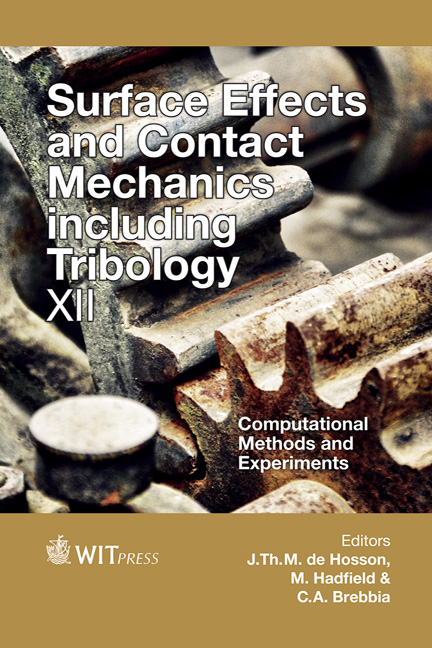Modelling Of Dynamic Friction In The Cold Forming Of Plain Spherical Bearings
Price
Free (open access)
Transaction
Volume
91
Pages
12
Page Range
141 - 152
Published
2015
Size
1,497 kb
Paper DOI
10.2495/SECM150131
Copyright
WIT Press
Author(s)
J. Woodhead, C. E. Truman, J. D. Booker
Abstract
Nosing is a cold forming process used in the manufacture of plain spherical metal bearings. The process ensures the outer bearing race conforms to the shape of the inner race, with a composite liner in-between to provide a low frictional moment. These bearings need to be precision engineered to cope with the large forces and demanding environments they operate within, finding wide application in the aerospace industry. Increasingly, Finite Element (FE) analysis is used to predict complex material behaviour in cold forming processes to support industrial experience in developing products and determining associated process settings. On-going work in this area aims to provide industry with validated FE models across a range of bearing sizes, with measured stochastic data accounting for uncertainties in material properties, strain-rate sensitivity, friction and geometric parameters, to enhance model simulations and provide confidence in new bearing introductions where experimental trials are expensive and time-consuming. Ultimately, a costly and time-consuming experimental process can be replaced with a virtual rapid one, in order to mitigate defects and minimise failure rates in production.
In this paper, a repeatable method for determining a pressure versus friction relationship is outlined using traditional ring compression testing combined with friction calibration charts, determined via FE simulation, for a range of different materials. This paper builds upon previously published work on modelling the nosing process with strain-rate sensitive data. Calculations will be validated against stochastic experimental data to ensure the developed methods are robust.
Keywords
friction, cold forming, nosing, modelling, FEA





